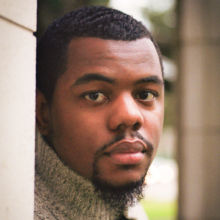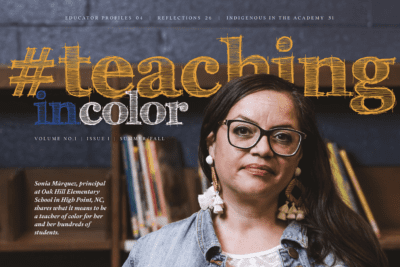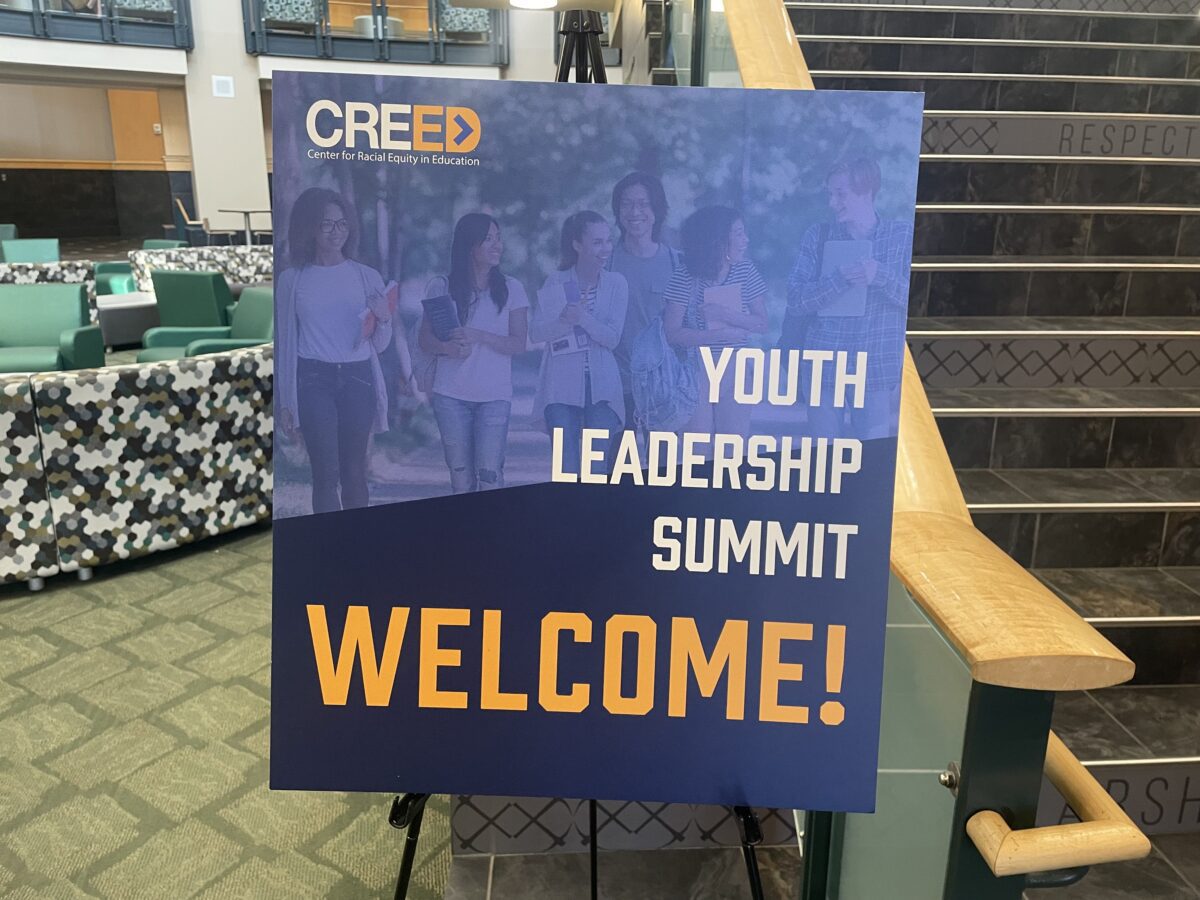

|
|
The Center for Racial Equity in Education (CREED) is honing in on developing youth leaders and amplifying student voices. The organization’s youth leadership summit earlier this month engaged students from Charlotte-Mecklenburg Schools in discussions centered on the significance of geography, as well as the power of youth in activism.
What is CREED?
CREED is a nonprofit rooted in pursuing racial justice by “closing the knowing-doing gap” in education.
The vision for an organization that focused directly on race and education in the state was initiated in 2018 by Dr. James E. Ford, CREED executive director and State Board of Education representative. In the following year, CREED released two reports that have since served as the foundation of the nonprofit’s mission: “Deep Rooted: A Brief History of Race and Education” and “E(race)ing Inequities: The State of Racial Equity in North Carolina Public Schools.”
Their work offerings of trainings, fellowships/professional development, research, and policy reports trickle down into youth programming in an effort to support the growth of student advocacy and activism.
Is geography destiny?
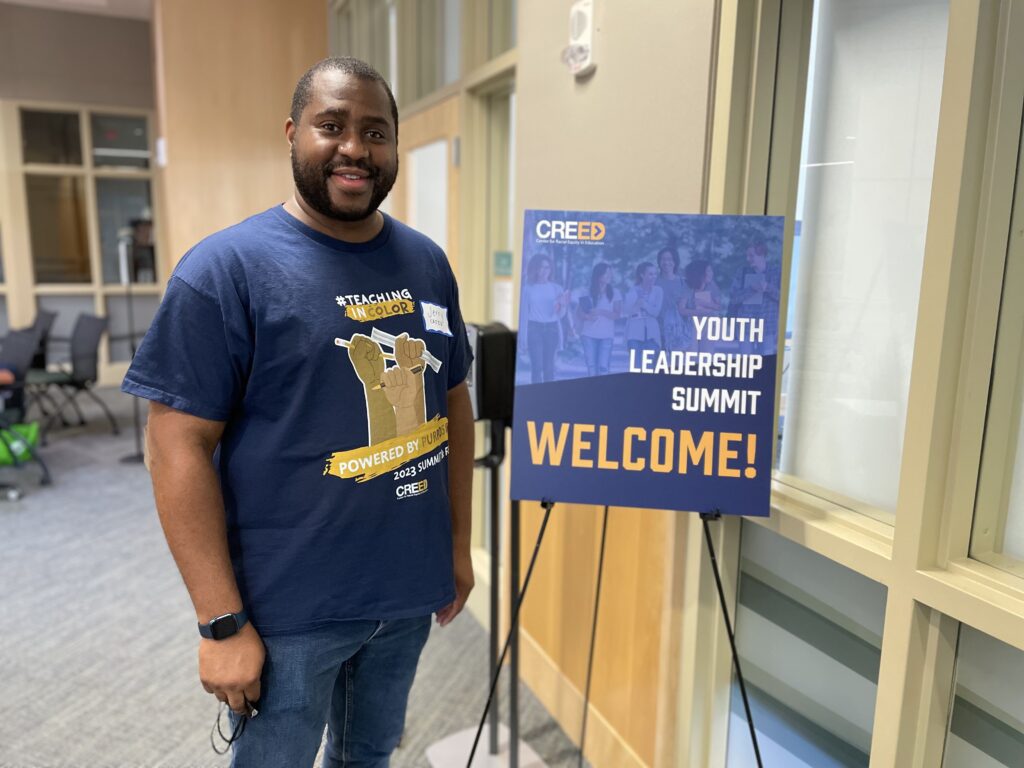

The summit kicked off with introductions and an icebreaker facilitated by youth program manager, Khamiah Alderman. After the laughter settled, students explored the meaning and impact of geography.
CREED’s director of policy and advocacy, Jerry Wilson, invited perspectives on the Ibn Khaldun phrase, “geography is destiny.” Participants sided both for and against the proclamation of geography being the determinant of one’s future. Despite varying views on how definitive the statement is, participants all agreed that a person’s environment plays a significant role in their growth and development.
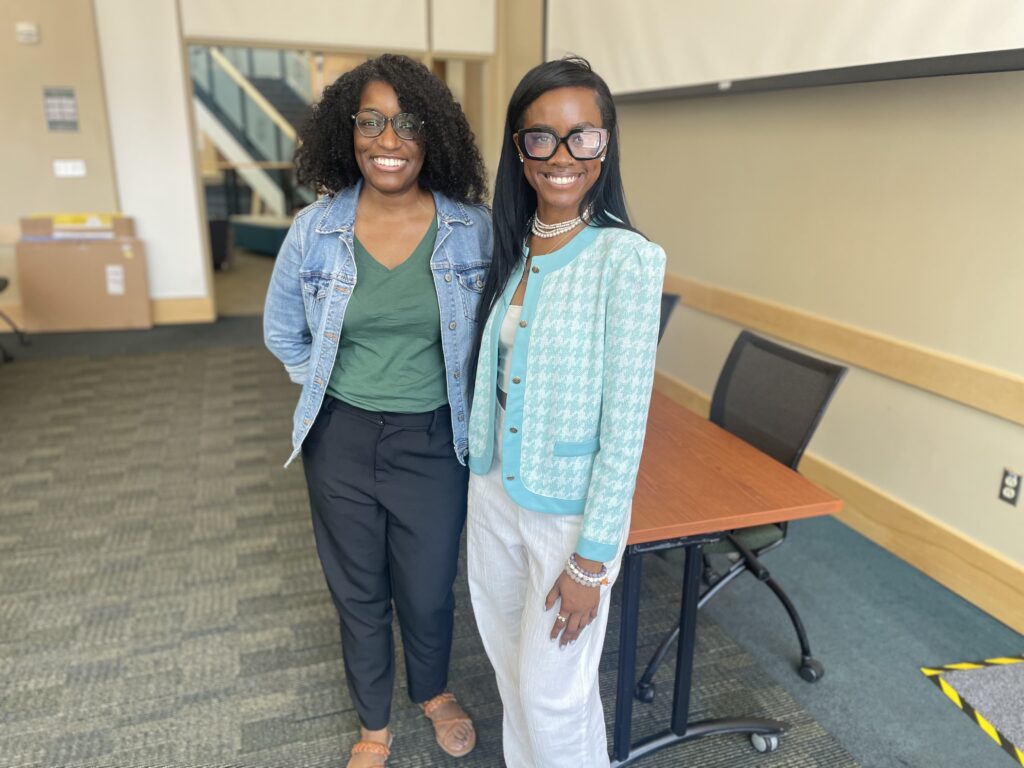

Wilson displayed several models to aid in defining geography. One diagram listed “physical” and “environmental” factors as components of geography, while another included a scale from local neighborhoods to nationwide. A key emphasis of geography was referred to as “social location,” which factors in education, ability, economic status, race, and gender.
Connecting the original prompt, Wilson correlated the phrase, “geography is destiny” to discussing location’s impact on social mobility. As an extension of the conversation, students were encouraged to consider both how geography shapes their education and the role they play in creating change in their educational environment.
“I chose to come because I wanted to be a part of trying to push out a change to people, to help our education become better.”
Khloe Moore, rising sophomore Julius Chambers High School and summit participant
Youth say ‘it’s our turn’
As the manager of organizing for Our Turn – NC, Iqra Tabassum is spreading the message about the importance of student activism.
According to their site, Our Turn is a youth-led movement that is focused on “dismantling oppressive structures that limit access to quality education.” At the summit, Tabassum gave an overview of how “student activists have been a crucial force for social change” globally and locally.
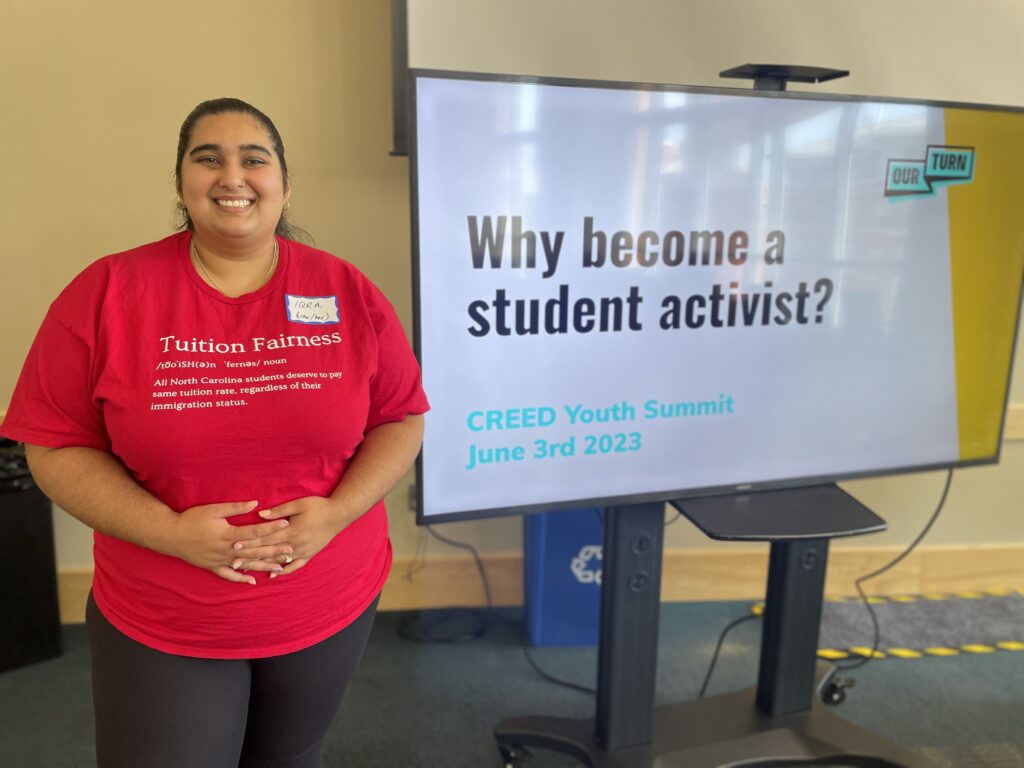

As a recent example, Tabassum highlighted Our Turn’s push for tuition fairness for undocumented students. Believing that “youth can lead the way in pursuing an equitable education,” Our Turn developed a student coalition that met over 30 legislators, advocating for the expansion of in-state tuition at UNC System institutions and community colleges.
“One thing I took away from the video Iqra showed us is that, even if you aren’t necessarily experiencing something, there’s nothing wrong with standing up for a cause that you yourself haven’t seen; but standing up for a cause that you see your peers struggling with.”
Carlos Gonzalez, rising senior at Cato Middle College and summit participant
Future opportunity for youth
Alderman questions how leadership can know what is right for students if they don’t create space to listen to them. Considering the degree to which policy changes can impact students, Alderman states that she wants to create a program that gives power to youth.
The youth leadership summit served as a springboard for the Leaders in Equity, Advocacy, and Diversity in Education (L.E.A.D) Ambassador program that CREED is preparing to launch.
According to Alderman, they will focus on continuing to develop youth leaders to be more active at their local schools and districts. The program is slated to include quarterly meetings and outings, a stipend for participation, and a project capstone. Application for the ambassadorship open in July 2023.
“I like that some people are out here fighting to get the right education.”
Ryleigh Clark, rising sophomore at Julius Chambers High School and summit participant
